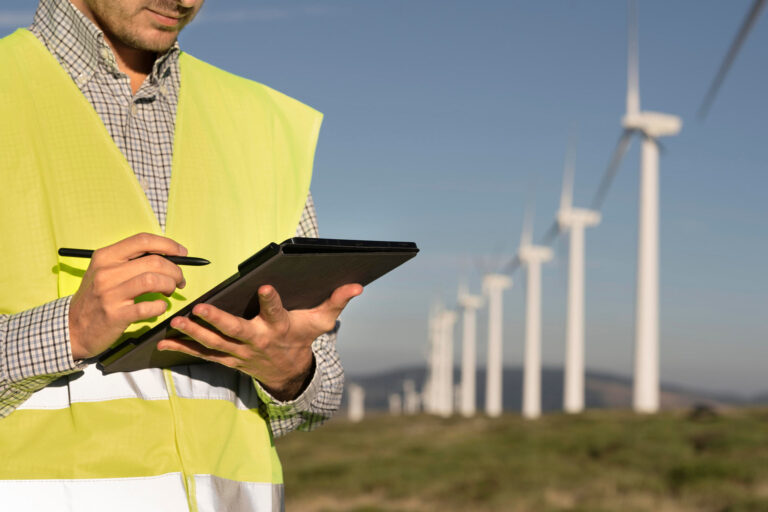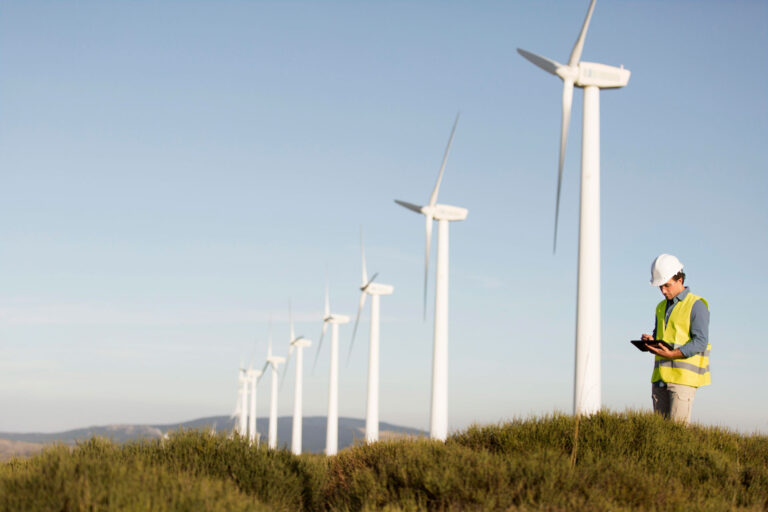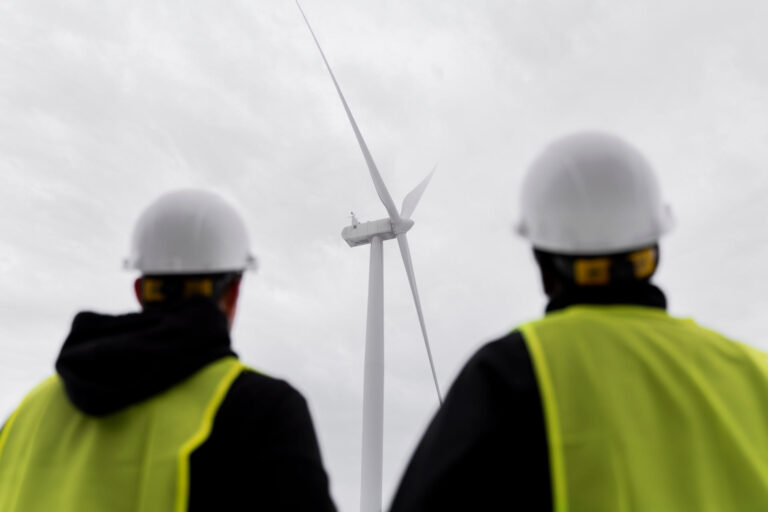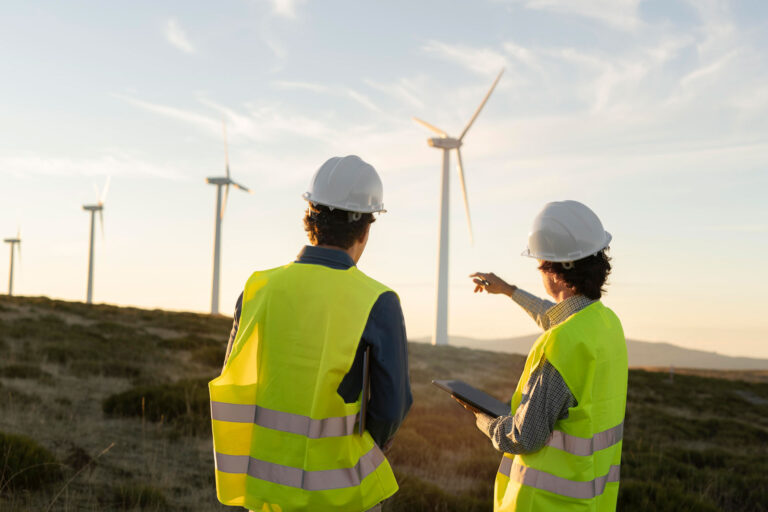Renewable Energy
Interaction between Renewable Energy Infrastructure Projects and Local Communities.
Global Energy Transitions
Offshore wind is central to achieving global energy transition. It has great potential as a resource that will enable clean power and energy security, it has surged in recent times and is poised for continued, if not rapid, growth.
There is an increasing public commitment to decarbonisation and a growing recognition that offshore wind can be a catalyst for generating economic growth while helping revitalise port and coastal communities by providing supply chain and service activity opportunities, educational support and employment. Climate commitments and rising power demands are a feature of global markets, and although the potential for offshore wind remains largely untapped, it does offer a solution to carbon-free electricity generation at increasingly affordable prices as enabling fixed and floating technologies are advanced.

Decarbonisation Technology
Offshore wind, as a leading decarbonisation technology, is a key component to meeting today’s energy challenges. IPC embrace the challenge of creating solutions to enable the transition to a low carbon system, our activities in this regard are primarily related to offshore wind as we help our clients effectively navigate the renewable industry’s complex and evolving consenting (permitting) regimes.

Partnership-Based Approaches
IPC enables the pursuit of sustainable development, energy access, energy security and low-carbon economic growth and prosperity. We do this by bringing host port and coastal communities together with offshore development project teams, facilitating meaningful and respectful engagement, collaboration and partnership-based approaches.

IPC Goals
IPC strives to facilitate an accelerated, just, and socially acceptable implementation of offshore wind as a key clean energy source enabling achieving net-zero as quickly as possible. We take every opportunity to encourage more agility and a greater sense of urgency among key stakeholders such as government, statutory and non-statutory agencies and departments, regulators, developers, grid operators and host community (coastal and port) stakeholders. We advocate for more streamlined consenting processes thereby greater speed of deployment. IPC encourages coordination and consultation among local, regional and national governments (incl state, federal, mayoral), creating fora for respective roles, responsibilities and perspectives to be shared in the context of the national offshore consenting (permitting) process.

Social and Public Discussion
IPC helps create a forum for social and public discussion, through involving local affected port and coastal communities for offshore wind, and rural communities for solar farms. IPC acts as a conduit for environmental, procedural and distributive justice, enabling meaningful involvement of all identified stakeholders in decision-making; therefore, giving people a voice concerning the future use of their local marine environment and realising potential benefits to the local social and economic environment.

Marine Spatial Planning
Marine Spatial Planning (MSP) is increasingly recognised as part of the process for reconciling national policies with sustainable development goals, biodiversity and the interests of marine users such as commercial fishing, shipping and coastal tourism. Offshore wind, being a key component of MSP, represents one of the chief ocean-based climate mitigation solutions. It will help usher in the transition to clean energy and reduce greenhouse gas (GHG) emissions to meet the Paris Agreement goals.

